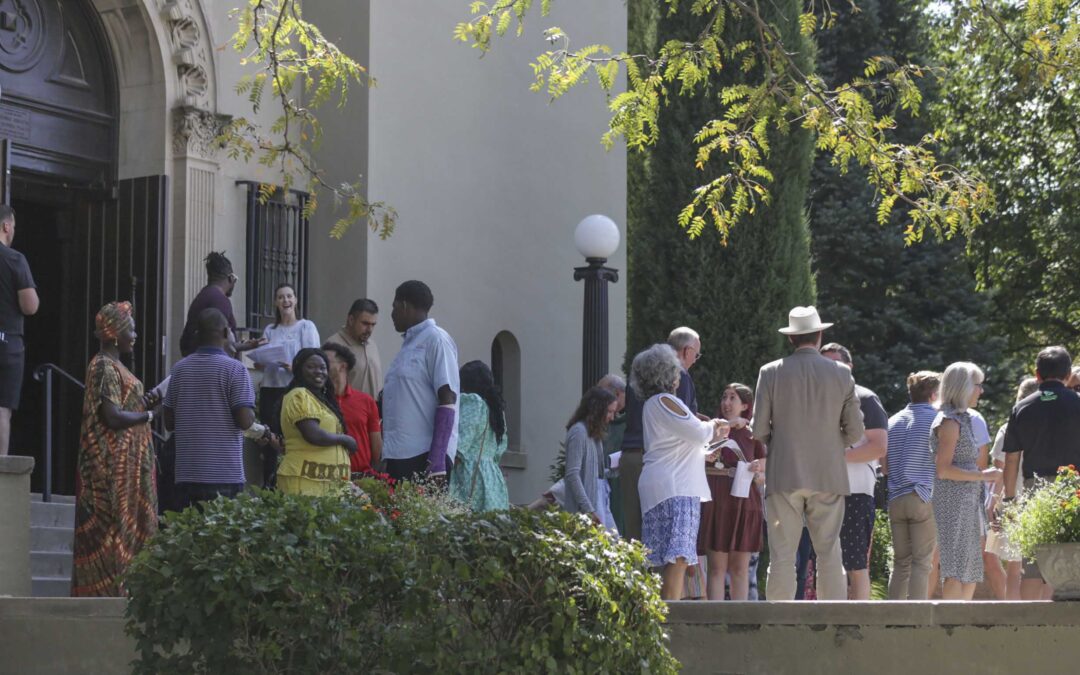Dear Friends,
You may recall that Pope Francis asked the entire Catholic Church to enter into a process of reflection as part of a synod on the Church itself. Each diocese was to engage their people and then to submit their results to their national church who in turn would submit the responses to the Vatican in preparation for the full meeting. Our parish participated in the diocesan process by hosting our own listening session and encouraging all parishioners to do the online instrument and let the Church know what you are thinking and feeling.
The Archdiocese recently published their summary statement of what was sent on from Omaha to the United States Bishop’s Office and will be included in the presentation to the Vatican. I am going to presume that most of you have not gone to the Archdiocesan website to read the summary. And so, I am going to use this space for the next few Sundays to give you a summary of the summary.
The synod questionnaire was completed by 7,678 persons and approximately 500 people participated in listening sessions. The ages of the participants were: 13 to 18-year-olds: 22%, 19-35-year-olds: 9%, 36-50-year-olds: 16%, 51-65-year-olds: 23%, over 65-year-olds: 29%, unknown: 1%. Most of the respondents were active Catholics. While it was hoped that there would be a more substantial response from people who no longer consider themselves Catholic and Catholics who do not participate in the life of the Church, it did not happen. To present a holistic viewpoint of all Catholics as requested by Pope Francis, comments were used to amplify the voice of non-practicing Catholics, those who no longer consider themselves Catholics, and non-Catholics.
One of the high points of the diocesan phase of the synod was the many people who said their lives were blessed by participating in the life and mission of the Church. Another high point was the enthusiasm of those who attended listening sessions (that was very true of our listening session at Cabrini). Those on the peripheries were particularly grateful that their opinion was sought since that does not often happen.
Many respondents expressed a genuine interest in evangelizing and sharing their faith with non-Catholics or fallen-away Catholics. These are people who consider themselves highly engaged in the life of their parish, are joyful, and eager to share that joy with others. Many respondents, who wrote comments, expressed genuine respect and admiration for Archbishop Lucas. They believe he is an exceptional shepherd to the people of the Archdiocese. Some people, particularly in the rural areas, expressed wanting to have more access to the archbishop.
One of the most important points of concern was the clear divide between members of the archdiocese. Some consider the Church too liberal and others too conservative. Some respondents see Pope Francis pushing a liberal agenda and hostile toward those who want a Latin Mass. They believe that the Church is following the culture instead of leading it. On the other side of the spectrum, some respondents said that the Church alienates people because it does not accept same-sex marriage, makes it too difficult to get an annulment, and is too conservative.
Some sources of tension in the local Church fell along the rural/urban divide. The majority of respondents, who live in the rural areas and submitted comments, believe that the archdiocese invests more time and money into urban parishes, and they are often ignored. Some noted the numerous pleas for money from their parish and the archdiocese are annoying, as are many mailings from the archdiocese.
More to come next week…stay tuned…
Peace,
Fr. Damian



